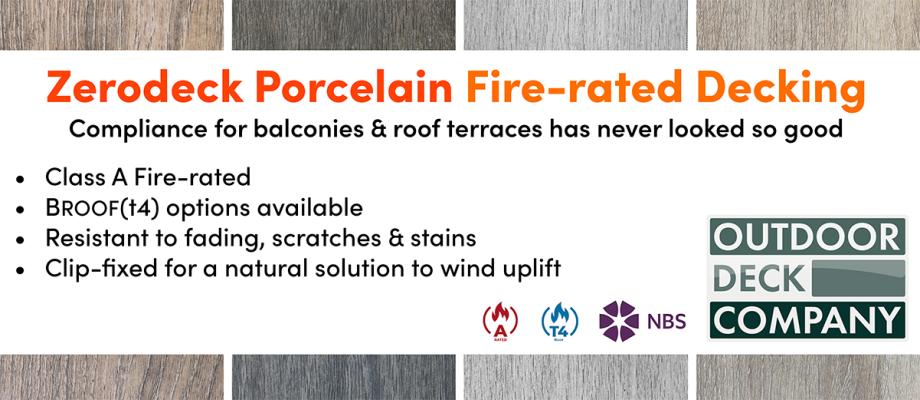YouGov research*, commissioned by housing provider Abri, reveals that many UK adults want to make a positive contribution to fighting climate change but feel ill-equipped to do so.
71 per cent of those surveyed acknowledged that the world is in the grips of a large climate emergency, and over two thirds (68%) recognise that global action to tackle climate change needs to begin immediately. Yet when asked to describe how they feel about climate change, the top three answers were ‘powerless’ (37%); ‘frustrated’ (32%); and ‘anxious’ (29%).
 The research has fueled Abri’s calls for positive climate action to be made accessible to all as it enlists the help of renowned eco-friendly chef, Tom Hunt, and customer representatives to launch its Living Well campaign. The campaign is focused on providing practical support to Abri customers and showing how sustainable and affordable lifestyles can go hand in hand.
The research has fueled Abri’s calls for positive climate action to be made accessible to all as it enlists the help of renowned eco-friendly chef, Tom Hunt, and customer representatives to launch its Living Well campaign. The campaign is focused on providing practical support to Abri customers and showing how sustainable and affordable lifestyles can go hand in hand.
Rose Bean, Executive Director of Assets and Sustainability at Abri explains: “We know that food poverty and fuel poverty are very real issues facing many people across the UK right now. We also know from this research that, while 43% of the nation want to help tackle climate change, another 46% feel they have little or no personal responsibility to do so. These people feel confused by conflicting opinions about climate change, they’re concerned about the cost and affordability of living sustainably, and many simply don’t know where to start. In the midst of a cost-of-living crisis, these are very real barriers to change.
“Our Living Well campaign is focused on providing sensible, realistic suggestions of small changes that we can all make, that improve our sustainability, and can save us money too. We’re now responding to our research findings by showing how we can all make subtle and affordable changes to our diet, which is a big contributor to our carbon footprint. This is something that – with the right information and support – is accessible for all of us and an area where we know many people want to make a change.
“As a sector, we are heavily focused on the future of our homes and the way in which new build programmes and retrofitting can support the UK’s journey to net zero carbon. We know that living in a safe, warm, and sustainable home supports health and wellbeing, improves life chances, and helps to tackle fuel poverty. This remains our core purpose, but we can also help to positively influence how homes are lived in – not just for the sake of the planet but to improve the lives and wellbeing of our customers.”
The research also reveals that 70 per cent of respondents are concerned with how future generations will live as a result of climate change, but just one in four (25%) recognise the term ‘net zero carbon’ and know exactly what it means.
In its aim to empower and enable its customers to take action, Abri will work with eco-friendly chef, Tom Hunt to offer guidance and support people to make positive changes to their diet.
Tom, who has recently published a new book, Eating for Pleasure, People & Planet, will help Abri provide what he calls “easy-to-adopt, affordable” tips for Abri’s customers and communities who want to eat in a more environmentally-friendly way.
He explains, “Eating sustainably is the easiest and most effective way to lower your personal carbon footprint. Making small adjustments such as reducing food waste, buying local-seasonal produce and eating more plants makes a really positive impact.
”Two in five UK adults (41%) said they would be willing to reduce how often they eat meat and animal products on a weekly basis in the next five years to help lower their carbon footprint. Combine this with the fact that more than two thirds (68%) feel that global action to tackle climate change needs to happen immediately, and it provides us with a really positive opportunity to help people make more sustainable dietary choices in an easy and affordable way.
“This isn’t about cutting out meat and dairy completely or adopting a vegan diet. Climate-friendly cuisine is about embracing the wonderful diversity of delicious foods the world has to offer. Making more environmentally-friendly choices with what we eat can be achieved by making subtle, straightforward changes. I’ll be working with Abri in the months ahead to share with its customers and communities what those changes could look like. Hopefully, by the end of the campaign we will have helped a significant number of people make positive changes to what they eat – changes that are easy, healthy, good for the environment and that should hopefully save them money too.”
The campaign is welcomed by Abri customer, Louise, who runs a Amesbury Green Fingers Community Garden and has written a cookbook for people using food-bank items.
“I think we all want to help tackle climate change and make a difference but buying food has been difficult for people especially affording locally-sourced fresh fruit and veg as the price of everything has gone back up. Trying to help people with this is a real passion of mine at the community garden. I grow my own fruit and veg and encourage others to grow their own at the community garden, so we are all eating locally grown and sourced food rather than imported items which affects the climate.
“There are lots of things people can do to eat in a more sustainable way, even if using food banks. It’s good to stick to buying what you need and using sustainable sources like pantries where the food is surplus from supermarkets and usually towards the end of its sell by date. Batch cooking and freezing items to stop food going to waste is also a good approach.
“When using foodbanks or food support, you can be given items and be unsure what to do with them, and then they end up being thrown away or wasted, but there are simple ways to put ingredients together and make them go further. People need more practical support and advice to show them how eating in a more climate-friendly way can actually save them money.”
Abri’s YouGov research also looked at other issues influencing people’s day-to-day carbon footprint, such as electrical vehicles, home improvements and where ultimate responsibility lies for driving positive climate action.
“Undoubtedly, these are testing times for many,” says Rose Bean. “The last thing we want to do is to encourage people to adopt a diet that may well be better for the environment but will actually end up costing more. That’s why this campaign, and our work with Tom, is dedicated to helping people make sustainable changes to their diet that will save them money too.”
- Log in to post comments















